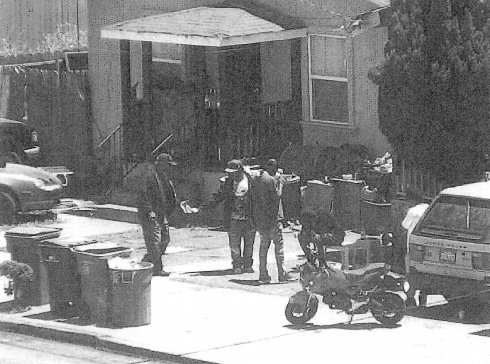OAKLAND — A city resident who was arrested during a federal investigation into what authorities dubbed an “open air drug market” operating in East Oakland avoided prison last week when a judge sentenced him to five years federal probation in lieu of incarceration.
Temarcus Rogers, 34, was charged two years ago with selling cocaine on the 1200 block of 89th Avenue in Oakland, and area that was being monitored by the Bureau of Alcohol, Tobacco, Firearms and Explosives for numerous hand-to-hand drug transactions in the area. He was also found with five stolen guns, and more than $15,000 in cash, according to authorities.
But despite the offense, the U.S. Probation department agreed with defense attorneys that Rogers should not receive prison time. He has been out of custody, on bail, for more than two years, attended counseling and Alternatives to Incarceration programs, and has found steady work at an East Bay warehouse since February, court records show.
Federal prosecutors also acknowledged that Rogers has appears to have turned a corner in life, writing in a sentencing memo that he has made, “significant post-conviction rehabilitation efforts, including maintaining sobriety, stable housing and family life, employment, participation in individual and group therapy, and successful engagement and completion of ATIP.”
But the prosecution still wanted Rogers locked up for nine years, court records show.
“Despite Defendant’s post-conviction success, because of the nature and circumstances of these offenses, which include the sale of a 685 grams of methamphetamine, and five dangerous stolen firearms, some ready for immediate use, pose a significant risk to public safety,” assistant U.S. Attorney Cynthia Stier wrote in court records. “For that reason, the United States recommends a low-range Guidelines sentence of 108 months incarceration, a $600 special assessment, and a 7-year period of supervised release.”
Rogers’ attorney, Alan Dressler, wrote in a sentencing memo that incarceration would have done more harm than good, adding that Rogers has the “desire and ability to become a productive member of society.”
“Mr. Rogers’ illegal conduct is traceable to parental neglect, early drug use, and the various traumatic events,” Dressler wrote, later adding, “A sentence of incarceration would only serve to interrupt and negatively affect the significant progress he has made to date.”
During the investigation into illegal activities on the block, the ATF surreptitiously installed cameras on light poles to monitor the area. The cameras recorded dozens of illicit drug transactions by several people who appeared to be working together, according to the criminal complaint.



















